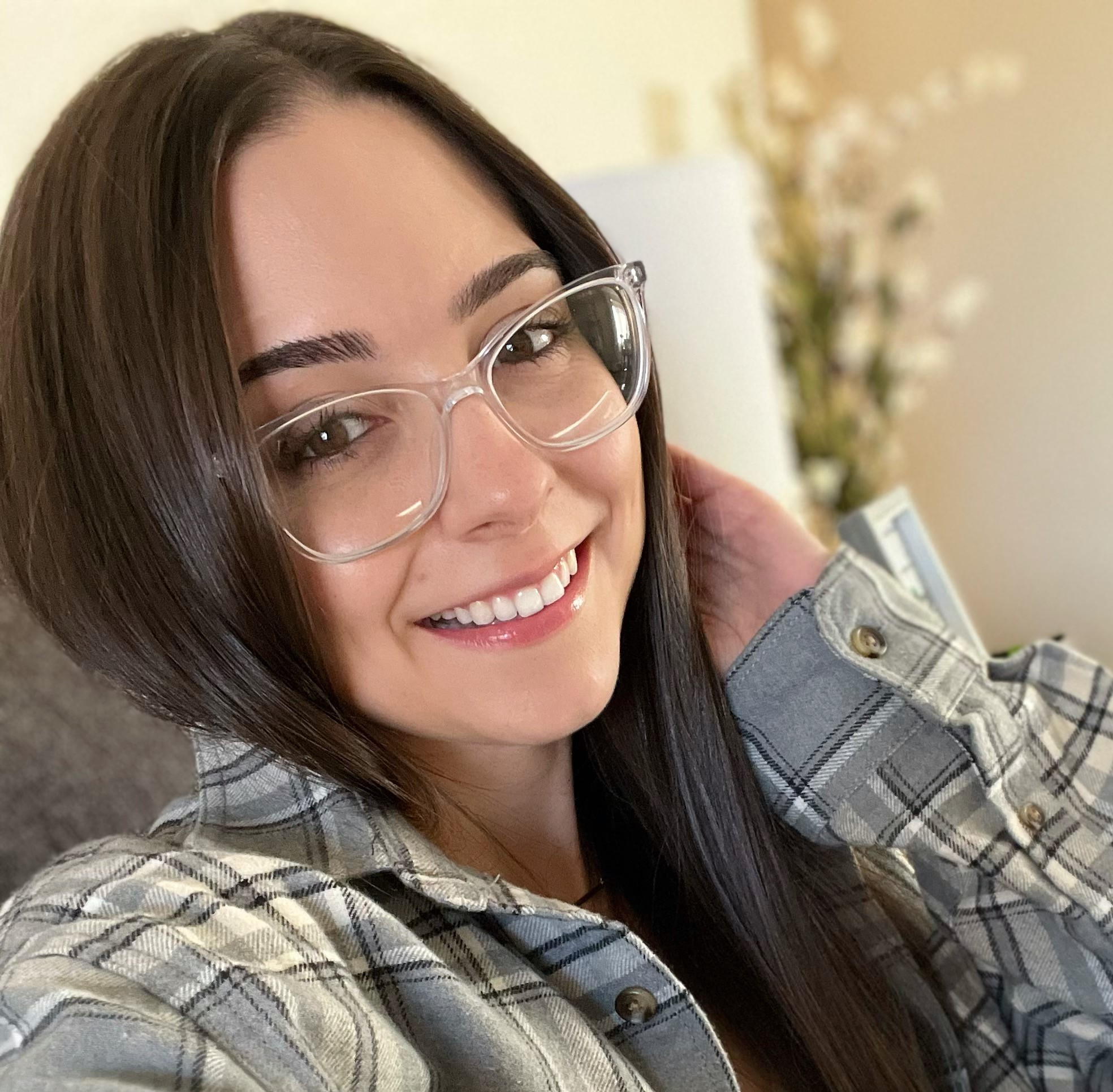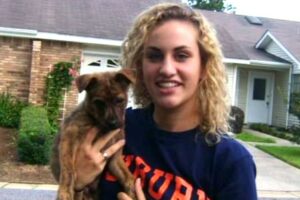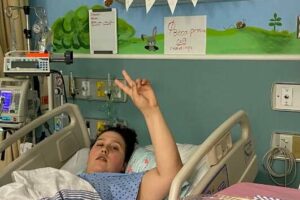In November 2016, I was at a wedding when my head started hurting. I took Tylenol, but it wouldn’t go away. In fact, it was getting worse. A couple of days later, my head hurt when I tried to turn, and I started getting pain behind my right eye and down the right side of my neck. I also felt like I was in a fog.
Thankfully at the time, I was working as a receptionist for a neurologist. I told him my symptoms and he examined me right away. He had given me some sample migraine medications, hoping they’d work. Unfortunately, nothing did. That’s when he ordered an MRI and warned me that something serious was going on.
I went for the scan the next day. After the exam, I was at a diner eating breakfast with my mom when my doctor called me. Usually when the doctor calls you so quickly after a test, it’s never a good sign. He told me that I had three large blood clots in my brain, extending down into my jugular vein, a condition known as cerebral venous sinus thrombosis, or CVST. Two of them were in the sinuses of my brain. The sinuses of the brain are large veins that receive blood from cerebral sinus fluid and cerebral veins. No wonder I was having these symptoms.
CVST occurs when a blood clot forms in a venous sinus in the brain, preventing blood from draining and resulting in blood leaking into the brain tissue. Thankfully they caught it when they did, because left untreated, it can cause a hemorrhage.
I was in the hospital for a little over a week. I received medications that thankfully worked so I didn’t need any surgical procedures. After my hospital stay, I learned that I have three genetic abnormalities that contributed to my clots: Factor II, MTHFR, and plasminogen activator inhibitor 1 (PAI-1). I had been prescribed birth control for menstrual cramps, and doctors said that quadrupled my clotting risk, given my clotting disorders.
After about seven months, I was blood clot free and have been ever since. Unfortunately, because I have clotting disorders, I’ll be on warfarin for life.
Having CVST has made me want to live life to the fullest and never take anything for granted. NBCA has not only educated me more on my diagnosis, but it’s also shown me I’m not alone. Many people suffer from blood clots and it’s important to spread awareness. I’m so thankful for my doctors, and so grateful I am here to tell my story and educate others. If you have unusual symptoms, it doesn’t hurt to get checked out. I’m glad I did because life is too short!
Resources
Women and Blood Clots
Know Your Risk
Signs and Symptoms of Blood Clots




